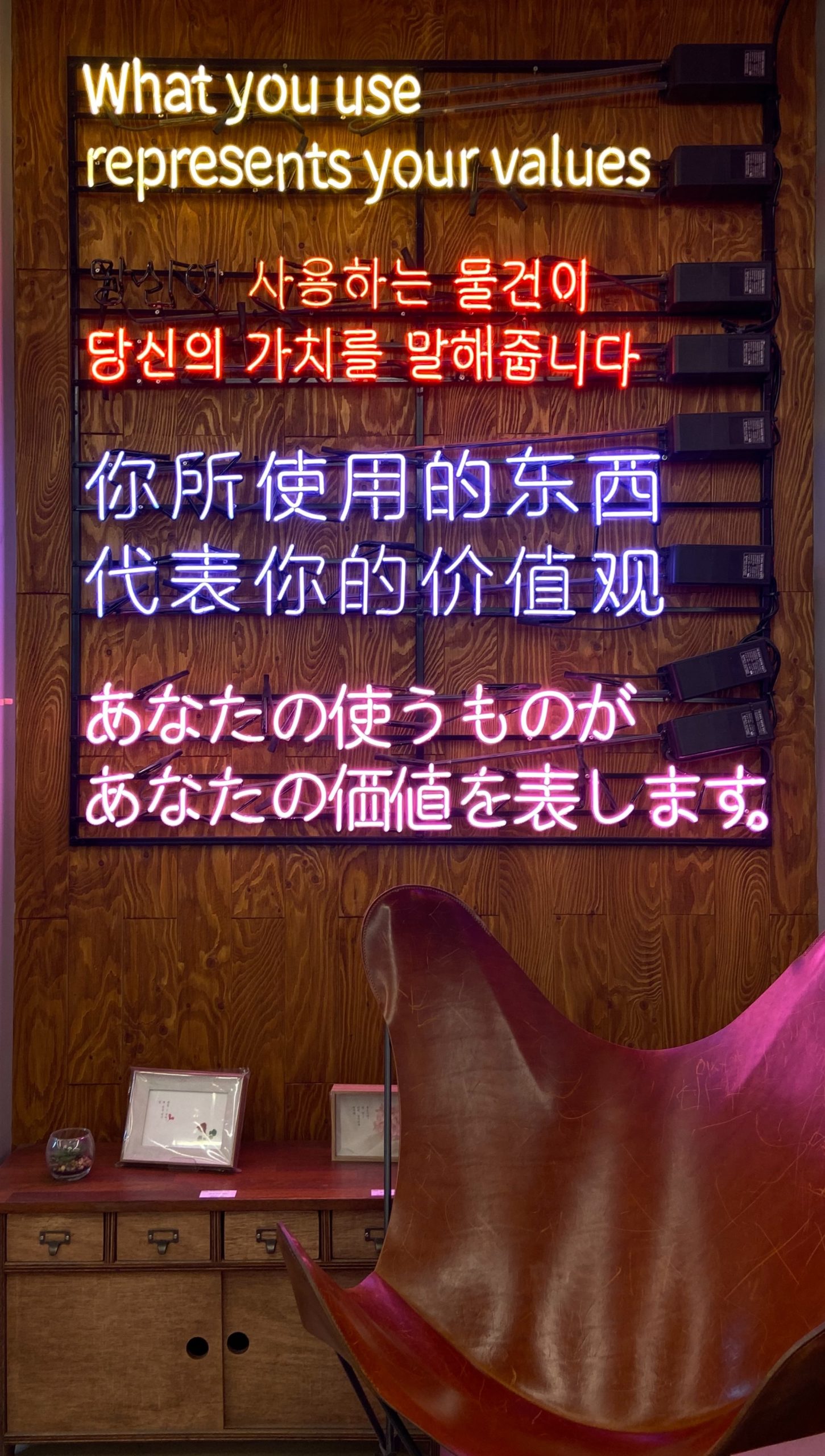
Leadership
Know your worth if you want to master your leadership
Every once in a while, I ask a client a very interesting question – “What gives you your sense of self-worth?” I’m often met with a blank stare. What usually prompts me to ask that question in the first place, is the coaching client is struggling with one of what I call the 3 reactive traps. These are the places we go to when our sense of identity or worth is threatened, our amygdala gets hijacked, and we feel we are under attack. The Three Reactive Traps Approval – I define my self-worth based on whether people like me and approve of me. I aim to please and will turn myself into a chameleon. Whatever I think the other person wants and needs I’ll be! Boundaries, what are they? It’s more important that I do whatever it takes to win someone over. Recognition and appreciation – it’s more than a nice to have, it’s a must. It’s my drug. It’s only then that I’m safe. Conflict is scary and I’ll do anything it takes to avoid it. Conflict is for difficult people. I’m a people person. I’m flexible. Other people do conflict. I do what it takes to make it work. Knowledge – I define my self-worth based on my smarts. I’ve got the answer – so you’re better off listening to me. If you don’t, I’ll tell you defensively or with an air of arrogance why you are wrong. You’re criticizing my work? No way! How dare you! It’s not my fault, someone else is to blame. Or apathy is the name of the game when I’m feeling challenged or ignored — I just can’t be bothered, you didn’t listen to my advice, so I’ll stay away and disengage. The project is doomed anyway, and I don’t want any part of it. The less I’m associated with this crappy piece of work, the better off I am. You made a mistake? I’ll be the first one to point it out and only highlight only the negatives. If someone receives the feedback badly? Who cares? Most people just aren’t that good at their jobs and they can’t take criticism. Accomplishments – I define my self-worth based on my achievements. I’m out to prove that perfectionism isn’t an illusion, and I will get there or die trying (and take the entire team down with me in the process). If the proverbial ‘you know what’ hits the fan, no problem, I’ll just do all the work. And if I think about it, it’s easier if I do, because then I know it will be done right. You have an idea on what would work best? Forget it – we don’t have the time and it’s better if you just do what I say. Celebrating success – what’s that? It’s on to the next thing! There’s always something next to do and we can’t drop our pace. It’s about getting ahead. I need to get ahead and prove how successful I am. The […]
May 26, 2023
|
6.5 min read

Authenticity, Leadership
Being versus Doing – What is a leadership purpose statement and how do I create one?
In many of the leadership courses I teach, I talk a lot about the difference between the being and the doing of leadership. The doing is the day-to-day stuff we get caught up in. It’s the systems or process, tools or models that we look to for guidance. And being the task and accomplishment-oriented humans that we are, we often focus more on the doing side rather than the being. As a leadership trainer I often hear this question: “What do I do when I need to x?” X could be giving difficult feedback, a tough performance conversation, realigning expectations, inspiring and empowering my team to deliver, the list goes on and on. And there are several tools and techniques out there that give advice on what to do relative to these challenges. Tools and techniques are helpful and I’m not underestimating the value they can add. But a participant of mine summed it up very well the other day when she said: “There’s no checklist for leadership. And people can see straight through you when you’re just going through the motions.” She’s right by the way. People ultimately respond to who you are being in that moment versus what you are doing or saying. We have this uncanny knack to sense when someone’s intentions aren’t aligned with their actions, or they’re saying the so called “right” thing to manipulate or control. So the leadership coaching question for today is, Who do you want to be as a leader? Who do you want to be as a leader? I often have clients write a leadership purpose statement. A lot of times folks struggle with this, and I accept the fact that it can feel awkward. But I’ve often mused that a mindful life is an intentional life. So why should your leadership be any different? Step 1: What’s my personal purpose? One way to go about this is to have a think about your own personal purpose first. This includes questions like: Maybe there is something that ticks all these boxes for you, or maybe some of the above. There may be several things that you love, but you may not necessarily be able to prosper at them. Perhaps you honor that by pursuing a hobby or volunteering your time to a cause you are super passionate about. There’s no right or wrong way of responding to these prompts. The key is to have a think about them and see what comes up. See where you may be able to find the intersections. Step 2: What goals do I have for my leadership? And then link this to the act of leading by asking yourself: Once you’ve had a think, time to put pen to paper and create your leadership purpose statement. Maybe your statement looks something like this: “I’m excited to work on the challenges of climate change and that gives me a sense of personal purpose. I want to lead my team to innovate and tackle this challenge […]
April 20, 2023
|
4.2 min read

Leadership
What We Can Learn From Elizabeth
It was a hot summer day in London, the day of my naturalization. I trekked down to the registrar office in Wimbledon with a few friends, including the two that had sponsored me for citizenship. It didn’t take long for the formalities, considering I’d paid the extra fee for the private ceremony. I was the only one to be sworn in. “Do you swear allegiance to the Queen, all her heirs and all her successors?” the officiant asked. “I do.” And it was done. I was officially a dual citizen. Then the officiant pressed a button, and the music to “God Save the Queen” boomed through the office. My guests all stood up abruptly at attention as if on cue. We sang loudly and somewhat awkwardly to a large cardboard cutout of Queen Elizabeth that stood in the office. I have to admit I thought that was a bit weird. But over time I’ve noticed the amazing quality that Elizabeth had to inspire reverence, even in the most unlikely of subjects. Americans have often had a strange fascination with the British monarchy. We may view the concept as outdated and irrelevant, but then flock to the gossip that surrounds sagas like Charles and Diana, Harry and Megan and the antics of Prince Andrew. And yet, in the background, beyond the chaos and the drama, silently running for seventy years, was Queen Elizabeth. There are many now that will write about her life as a way of honoring her, I don’t profess to know much about her. But I am intimately acquainted with her legacy. And that’s the interesting thing about great leaders. They leave one. great leaders know who they are These are questions I often ask when I’m facilitating a leadership development course. Simple questions on the surface, but usually the most difficult to answer. We’re often so caught up in the minutiae of the day, we don’t take the time to reflect: Who am I? What kind of leader do I want to be? What are my values? What is my mission and purpose in life? How do I want others to experience me? What legacy will I leave? I think Queen Elizabeth knew the answer to these questions. And as a result, she showed up, year after year, with a stoic calmness, a beauty, a grace, a clear sense of duty, that was invaluable to her subjects in times of trouble. and more importantly, they know who they’re not A great leader brings people together in times of hardship, in times of stress, in times of confusion and conflict. They’re able to do this not because they have some sort of magic formula that will make everything all right. There is no such thing no matter how many leadership books you read or Ted Talks you watch that process to have the perfect pill. Great leaders can do it because they’re grounded in their own sense of self-worth. They know who they are and more importantly in the […]
September 11, 2022
|
3.8 min read

Communication
Feeling resentful about something? Think about this.
Giving feedback is never an easy task. I’ve recently mused about this topic quite a bit, and written a blog recently on the art of straight talk, which highlighted the three elements that are critical to doing this well. And then there’s real life. It’s one thing when it’s a colleague. It’s another thing when that colleague is also a very close friend. My friend Jenny and I have known each other for years, and we’ve also collaborated on a number of projects. She’s one of my favorite people, she’s funny, insightful, hardworking, caring and full of entrepreneurial spirit. She’s commonly the ideas person in our dynamic duo, and I work behind the scenes to help execute her ideas. Lately I’ve been experiencing some frustration relative to what I’m calling the whiplash effect. She has a grand idea, I rush behind the scenes to make it happen, and then it gets shelved. we create resentment when we don’t speak up And so, a couple of glasses of sparkling rose into a business lunch we were having the other day, out it came. I shared with her my frustration, and the grief this had been causing me. It wasn’t a perfect delivery as far as feedback is concerned. I didn’t follow each of the straight talk steps in perfect unison, but then again perfect is the enemy of good. I was still scared, even though she’s my friend. I was scared especially because she’s my friend and this relationship really matters to me. I fully expected her to listen, and she did. I fully expected her to acknowledge the frustration and the mixed messages she’d been sending, and she did. What surprised me was the text she sent me later on. “I’m going to do better.” And she expressed sincere concern for hurting my feelings and sending mixed messages. I had to ask myself why I was so surprised. And then I had a realization. I’m not used to people owning things. I’m not used to reciprocity in relationships. And this isn’t because I think other people are inherently selfish, or I was picking horrible people to surround myself with (although in some instances I could have done a better job on that front). In the past I often took the path of please and appease rather than assert myself and share my concerns. I took that path because I was desperate for people to like me, to have a ton of friends in my network. Unconsciously, this was a hidden measure of success. Interestingly it didn’t matter whether I liked them. I got used to giving more than my fair share. I got used to not sharing my voice or truth on things, then feeling resentful, and rather than expressing it, shoving it down and shaming myself instead. Then I’d have to find ways to numb the pain. Or it would spill out in other passive aggressive ways and ultimately pollute the relationship. when we know our worth, we can […]
September 2, 2022
|
4.3 min read

Authenticity, Leadership, Life Direction and Purpose, Mindfulness
Your values matter in life and leadership. Here’s why.
A discussion about values can often seem like an artificial conversation. It’s a nice to have, not a need to have, right? Something I do once at a training course because the facilitator forces me to do it, and then I shove the paper they’re written on in a desk drawer and forget about it and go on with the rest of my business. Values can help or hinder our growth and development What’s interesting to understand about values is they can help us or hinder us. And that might seem counterintuitive, because aren’t values a good thing? The answer is, it depends. Let’s say I value accuracy. If I place too much emphasis on accuracy, I might find myself overworking reports, overworking data, to an extent that’s unnecessary for the task at hand. Many of us trip ourselves up this way and forget the tried and tested 80/20 rule. One value that I tend to hear a lot from clients is trust. Trust is an interesting one because we often gravitate towards it if we’ve been hurt in the past. Maybe our parents got divorced and it eroded our trust in them. Maybe a spouse or partner cheated on us, and the result was devastating, we can never trust again. Maybe a business partner stole money from us, or a family member wronged us. The list goes on and on. Based on these life experiences we then conclude that trust is the most important thing in any relationship, and we cling onto it for dear life. We suspiciously look for signs that someone might be untrustworthy. We fear that our worst nightmare will come true, and then it does. We reinforce this idea by telling ourselves things like, “the only person I can trust is myself.” Fear based values versus conscious based values Don’t misunderstand me, it’s not wrong to value trust. But it’s worth thinking about the relationship you have with your values. Did I consciously choose to value trust because it’s important to me, or am I desperately clinging to this value out of fear? And if I’m clinging to a value out of fear, how might that be blinding me? How might I then be unconsciously creating the situation I fear? For years I clung to authenticity. It was my biggest personal value. And when I think about my personal history, that makes perfect sense. I grew up in a household where conformity was valued, and I often felt like I could never be myself or loved for who I am. I had to fight very hard for the right to just be myself. I even prided myself at one point of being the proverbial black sheep of the family. I was so concerned with losing my “authentic self” that it inadvertently blinded me to choices I might have liked but wouldn’t even consider because they seemed on the surface to be too conforming. A few years ago, I gave up authenticity as my most important […]
August 11, 2022
|
3.9 min read

Communication
The Problem with Feedback
The other day I got my student feedback from a course I teach each semester on Managing without Authority for a local university. I opened it up, excited to see what the students said, and my eyes were drawn to the one respondent that disagreed the course was valuable, and also disagreed I was knowledgeable. In the free form feedback it said: “Too much reliance on students and not the teacher. We spent more time talking in groups than being provided real insight on managing without authority. If we asked a question, it was not answered and instead thrown on the class to answer.” My heart sank. And the mind monkey took off. I’d been outed. Because when I look deep at my own inner saboteurs, the one that screams the most is “You don’t know enough.” We Fixate on the Negative Feedback So that comment really stung. I’ve often noticed this tendency in life, where we humble human beings fall into negative confirmation bias. We look for the things that confirm our worst fears. Our worst fears are then confirmed, and we fixate on it. Never mind the 18 other people that strongly agreed that the course was valuable. Never mind the copious comments on how engaging the course was, how much they liked the case studies, my humor, the breakout groups. Never mind that these 18 thought I was knowledgeable. In that moment none of it mattered. This one individual in the six years I’d been teaching for this institution had finally seen the truth of me. The game was up. Unfortunately, I had opened this email in the middle of an important 3 day meeting I was participating in. And then I cursed myself for opening something that could be potentially triggering at a moment I needed to concentrate most. It took some effort, but I managed to steer myself back into the meeting and reground myself. Yay for mindfulness techniques! I spent a few moments practicing some deep breathing, focusing with my eyes on a few objects in my office that bring me joy and are beautiful to look at. Slowly but surely the dissonance faded away and I regained my composure. When will we be enough? But it got me thinking…it’s interesting this tendency we have to need to prove ourselves. We obsess about the big presentation that’s coming up, how we must be prepared and have the answer to every potential question under the sun that might be asked. We stress about the quality of our work. Is it good enough? Will people think that I’m credible and I know what I’m talking about? We stress about the quarterly performance review; will I be rated above average or exceptional? And what does it mean if I’m not? But here’s the bottom line – When do we get to enjoy things? When we know enough? Because that’s a fool’s game. Enough is never enough because there’s always something new to prove, someone new to impress, […]
July 20, 2022
|
3.7 min read
leadership coaching
Shelley Pernot, otherwise known as the Irreverent Guru of Mindfulness, muses on life, leadership and everything in between. Your one stop shop for career tips, leadership tips and daily inspiration!

It was a privilege to work with Shelley as my leadership coach! The process was structured and yet flexible enough to meet needs as they arose. Shelley helped me to grow, learn more about myself, and to really achieve what I set out to accomplish. We worked on planning, navigating a promotion successfully, and so much more! I experienced many successes as a result of working with Shelley, she has great resources, knowledge, and really helps with setting the foundation to this coaching work. She won’t let you down!
Stacy Campos
Regional Coordinator
Having the opportunity to have Shelley as my Leadership Coach could not have come at a better time in my career. I was recently promoted to CFO and was new to the Senior Management Team. Shelley helped me navigate joining the team as well as helped me to determine who I wanted to be as a leader. The Leadership Circle Profile helped our team to discover our blinds spots and to be able to understand each other better. Working with Shelley not only has affected my professional life in a positive way, but also my personal life. She helped me take leaps and has given me the resources to continue this journey of self-improvement. If you’re looking to find more about yourself and how you can be the best version of yourself, I highly recommend working with Shelley.
Kristen Spedale
CFO
I have been working with Shelley for the past 2 years on my leadership development journey. What I thought would be a straight line, I soon learned with Shelley’s guidance, was a winding path with several ups and downs along the way. Shelley supported me as I took a deep dive into my professional and personal history and learned how it affects my approach and my perceptions. She helped me to slow down and recognize certain behaviors and understand that I can pivot in the moment or try again next time. Ultimately, my work with Shelley turned out to be so much more than what I expected. Her approach to coaching was exactly what I needed.
Nicole Naassan
Senior Vice President, Consulting
I’ve learned more about leadership in the past six months working with Shelley than I have in my 10+ year career. She is an incredible coach with many tools in her toolbox. The guidance and mentorship I’ve received from Shelley has been life-changing. She will challenge your limiting beliefs and inspire new ways of thinking.
Margaret Soltis
Creative Director
I highly recommend Shelley if you need a coach, thought partner, and guide as you consider the next steps in your career. She provides practical tools and advice to help launch your career exploration, but most importantly, she is an expert at helping you cut through the noise of your limiting beliefs. At the end of our time together, I had a much clearer vision of what I wanted in my life and a plan to make it happen. My only regret is that I didn’t find her sooner!
Elizabeth Magnus
My career coaching sessions with Shelley have brought me back to living. It’s been contagious, spreading throughout my personal and professional life. I now have the building blocks I need to continue setting healthy boundaries, the freedom to show up as my authentic self, and an adaption of a growth mindset that has allowed me to make bold decisions and try new things. I’ve discovered that there’s always another way and how to eradicate barriers that lead to tunnel vision. These sessions with Shelley have been a great gift and have given me the momentum I need to continue the journey to be my best self.
Teasha Houston
Art Director
It is amazing to think where I was only 10 months ago when I first started working with Shelley and where I am now. Not only professionally but mentally and emotionally. Shelley helped me navigate out of an unhealthy work environment by challenging me and asking me those tough questions we never seem to ask ourselves. What are the values of a true leader? How do those values align with my own? Shelley challenging me and guiding me through some of those tough questions is what led to my epiphany and me having the courage and confidence to leave an environment that threatened my well-being. She taught me how to become more self-aware and self-compassionate. Reminded me to be kind even when the world would understand if I did otherwise. And the biggest one for me, shutting down that crazy inner voice (we all have it!) and replacing it with being present. Shelley has armed me with tools that I will carry with me for a lifetime. Tools that will help me to continue to grow and learn. Life can be hard but working with someone like Shelley does make it easier. She will help you navigate the good and the bad and you’ll learn so much about yourself in the process.
Michele Feria
Director of Marketing
First of all I would like to say that I would recommend Shelley to anyone needing career guidance. As my counselor Shelley helped me transition my career from bartending to Tech Sales which was a difficult and scary transition for me. From the start Shelley was fantastic. Initially I had no idea of which direction I wanted my career to go, I just knew I wanted it to go somewhere else. Shelley was so kind and patient as she helped me figure this out, and gave me a step by step guide on how to explore my options and make an educated decision. She also helped me assess my skill set which played a large part in directing my energy. I landed a great job within days of my final session with Shelley, and now I’m month 3 I am absolutely loving it and doing very well. It was the perfect job for me and Shelley was the one that got me there. Working with Shelley was one of the best decisions I have ever made, she literally changed my life and I am so much happier for it.
Russell Boxer
Account Executive
